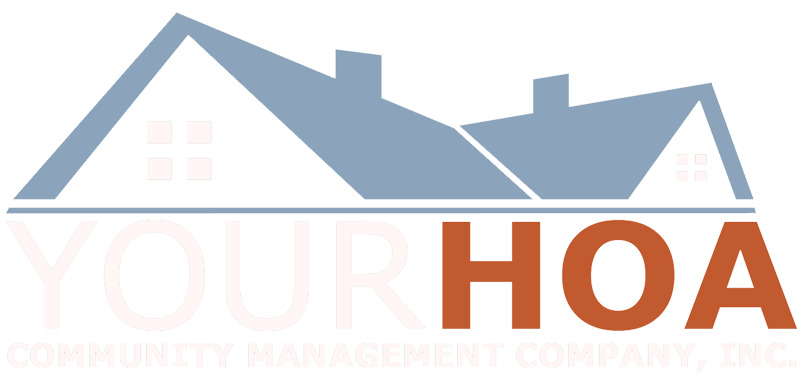People generally invest in insurance coverage to protect themselves from expenses if anything should happen. Homeowners’ association (HOA) insurance works similarly, providing a safety net for association members when there are unforeseen liabilities and costs related to community property and legal claims.
Understanding the complexities of HOA insurance and finding the right policy for your association can be overwhelming and leave you with more questions than answers. However, it’s vital to have HOA insurance coverage to shield board officers and homeowners from financial culpability in case something goes wrong.
If you’re unsure about HOA insurance, how it works, and why your association may need it, you’ve come to the right place. Read on for answers to the eight most frequently asked questions about HOA insurance.
1. What is HOA insurance?
An HOA insurance policy provides protection for homeowners’ association members if an accident or damage occurs in a community’s common areas. The policy protects HOA members from liability in case somebody suffers an injury and covers the cost of repairs when a shared space is damaged. HOA insurance, also called the “master policy,” should cover any community space or structures shared by the association members, such as:
• Swimming pool
• Playground
• Fitness center
• Clubhouse
• Dog runs
• Walking trails
• Walkways
2. Does my HOA need insurance?
Because HOA insurance is one of the best ways for your association to limit financial risk and liability, it’s generally a good investment. For many HOAs, the governing documents will require board members to secure some type of coverage to protect the association and its members. HOA officers should always review their governing documents to make sure they have the appropriate insurance and at least the minimum coverage.
Without HOA insurance, the association may be solely responsible for expenses related to property damage and legal fees and settlements. This means the HOA will need to use its own funds—working capital or reserve account—to cover these costs, which can be substantial. If an HOA can’t cover these payments, residents may be asked to pay additional dues or a special assessment to make up the deficit.
3. What does HOA insurance cover?
A general HOA master policy will include two main types of coverage:
• Property damage - HOA insurance is designed to offset the cost of common area repairs after they’ve been damaged. However, check your policy for any exclusions related to weather or natural disasters. That type of damage may not be covered.
• Liability expenses - An HOA insurance policy should also protect association members from liability when a person is injured in a common area on the property. Even if the accident wasn’t fully the HOA’s fault, the association may have shared liability for legal damages, which HOA insurance may cover.
If you live in a condominium, it can be a little more difficult to distinguish between common areas and an individual’s property because many elements are often shared. In these cases, “bare walls” condo association insurance will also cover the building’s structure, including the walls, insulation, plumbing, and wiring. “All-in” coverage adds more protection for installed features in the building, like light fixtures and entryways.
4. What’s the difference between HOA insurance and homeowners insurance?
While HOA insurance provides protection for homeowners in the common areas of the community, homeowners insurance is specific to the resident’s property, including:
• The home’s exterior
• The home’s interior
• Personal property within the home
• Improvements or additions to the property
Mortgage lenders will often require homeowners to purchase an individual policy for their home, even if they live in a community with HOA insurance. For the most part, HOA and homeowners insurance policies have completely separate roles and don’t duplicate coverage.
5. What type of coverage does my HOA need?
Your HOA should obtain adequate coverage for your community’s needs, which isn’t always the bare minimum. Your governing documents may establish a minimum amount for your HOA insurance policy, but it’s important to understand that you can consider additional coverage if needed. To ensure proper coverage, consult your association attorney.
Some types of coverage that may be part of your HOA master policy include:
• Property value and replacement cost
• Directors and officers (D&O) insurance
• Workers’ compensation
• Discrimination claims coverage
• Commercial general liability
• Commercial umbrella policy
6. How do you buy HOA insurance?
Insurance agencies will typically offer several types of policies, including HOA insurance. However, HOA insurance can be more complicated than other types of coverage, so it’s crucial to work with a trusted agency that can share expert-level insight and guidance.
Even if your association already has HOA insurance and you’ve been with the same broker for a while, it doesn’t hurt to get quotes from other companies. Look for insurance agencies that specialize in commercial real estate and have a good reputation in the industry. Most of these companies will offer free initial consultations and estimates, which you should take advantage of. This will help you find the right agency that offers exactly what you need for your HOA.
7. How much is HOA insurance?
The cost of HOA insurance will depend on several factors. Some communities have more common areas or shared structures than others, which may call for a more comprehensive policy.
Likewise, your location may be more at risk for property damage than others, making it wise to include flood or earthquake protection in your master policy. These are all considerations to think about when shopping around for insurance quotes and consulting with brokers.
8. Who pays for HOA insurance?
Homeowners pay for HOA insurance through their HOA dues or assessments. Residents living in a community with a homeowners’ association will pay dues to help fund:
• Daily operations
• Repairs and maintenance
• Community improvements
• Cash reserves
• HOA insurance
Payment for the insurance policy is usually divided by the number of association members, then included in the assessments for each homeowner to pay equally.

